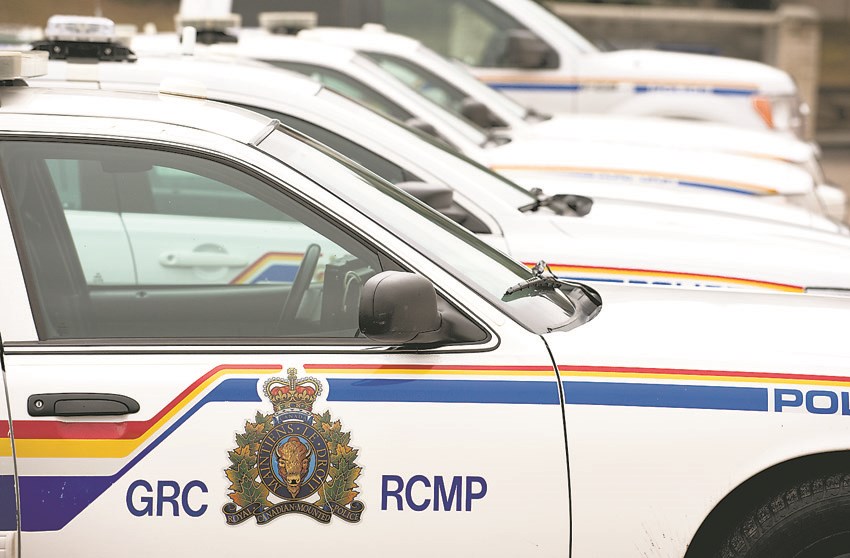A sting operation conducted in May at a St. Albert hotel has sent at least three men to a controversial education program for people who are caught buying sex.
On May 3, RCMP arrested five people who tried to buy sex from an undercover police officer.
The officer posed as a sex worker during the operation, which was organized at the St. Albert Inn & Suites.
It’s the first sting of its kind that has been conducted in St. Albert since at least 2020, when the Alberta Law Enforcement Response Team (ALERT) took over policing human trafficking in the province.
ALERT has done six hotel operations in the past two years, according to ALERT’s director of communications, Mike Tucker. For this sting, they worked with St. Albert RCMP.
“These stings provide a measure of deterrence and help with educating the public to this growing issue,” Tucker said in an email.
“Oftentimes people working in the sex trade are not doing so willingly. There is an inherent risk with the sex trade, and it is important to still hold the sex buyers accountable.”
Selling sex has been legal in Canada since 2014, but purchasing remains illegal.
ALERT chose the St. Albert Inn & Suites because the hotel agreed to cooperate with police, not because it was a target of their investigation, Tucker said.
St. Albert RCMP asked for ALERT’s help catching sex buyers because “St. Albert Crime Reduction Unit (CRU) believed there were sex trade workers in the St. Albert area,” according to an email from the CRU.
“This proactive approach helped ensure the safety to the workers in the sex trade and help the local sex addicts by providing an offer for recovery and counselling,” they said.
“Education and recovery for first time offenders were the primary goals of this project, and based on these parameters, St. Albert RCMP considered this operation a success.”
Another aim was to “identify potential repeat offenders or offenders who could be deemed high risk,” but the CRU said they nabbed only first-time offenders.
Off to ‘John school’
First-time offenders caught purchasing sex have the option of attending the Sex Trade Offender Program (STOP), informally known as “John school.”
That’s where three men busted at the St. Albert Inn & Suites landed after the sting operation. (The Gazette hasn’t been able to confirm whether all five of the people caught during the operation were sent to the program.)
Liz John-West is the executive director of the Centre to End All Sexual Exploitation (CEASE), which runs STOP.
She says STOP is all about making sex buyers aware of the social harms and damaging ripple effects of the decision to purchase sex.
“We are giving men an opportunity for pause, to reflect, to rethink that their actions have consequences,” she said. “What I really appreciate about the John school is that these men really take it seriously. They listen to what’s being shared … [Almost all of them] have said, ‘You know, I never thought about that.’”
The program runs for eight hours and is typically held at a police department. The “Johns” meet with police from ALERT’s human trafficking team who talk about the consequences of being arrested for buying sex.
They also get a visit from a Crown prosecutor, who unpacks the legalities of sex work, and they hear from an Alberta Health Services employee who details which sexually transmitted infections they might catch.
Later in the day they meet with former sex workers who were harmed by the trade and former Johns who have sworn off purchasing sex.
Sex buyers who attend the program do not get a criminal record. Individuals with a history of violence against women can’t participate.
Is John school 'conversion therapy?'
For Mona Forya, a woman who has been in the adult entertainment sector for several decades, “sex work is work.”
She says that John school programs and sting operations to catch sex buyers do not help workers like herself. In fact, they do the opposite, by pushing the industry further to the margins and making the people involved feel as though they must operate in secrecy.
“It’s sort of cruel,” Forya said. “It really has a negative effect on us because it just freaks people out.”
“When it comes to sex work — we’re like everybody else; we’re just trying to get a living going.”
Forya is a member of the organization Advocacy Normalizing Sex Work through Education and Resources Society (ANSWERS), which is also opposed to John school.
“[John school] is conversion therapy,” she said. “You put people through eight hours of brainwashing, and they come away feeling pretty miserable. Eventually, they just learn not to repeat the process in open view of other people.”
It is a misconception that most of the women in the industry are being trafficked or coerced into the job, according to Forya.
She said that sex workers in Edmonton have achieved a measure of security because the city licenses body rubs and licenses the sex workers who sell their services at the establishments.
In an email to the Gazette, the City of Edmonton said it licenses adult services to protect sex workers, prevent underage individuals from working in the industry, help those seeking to leave the industry and reduce opportunities for human trafficking.
St. Albert does not grant licences to body rubs, sex shops or sex workers.
It’s a stance that Forya hopes the city reconsiders, as she believes licences help normalize the job and are a more effective tactic to keep sex workers safe.
The city said it has not received any recent inquiries from entrepreneurs looking to set up shop.



